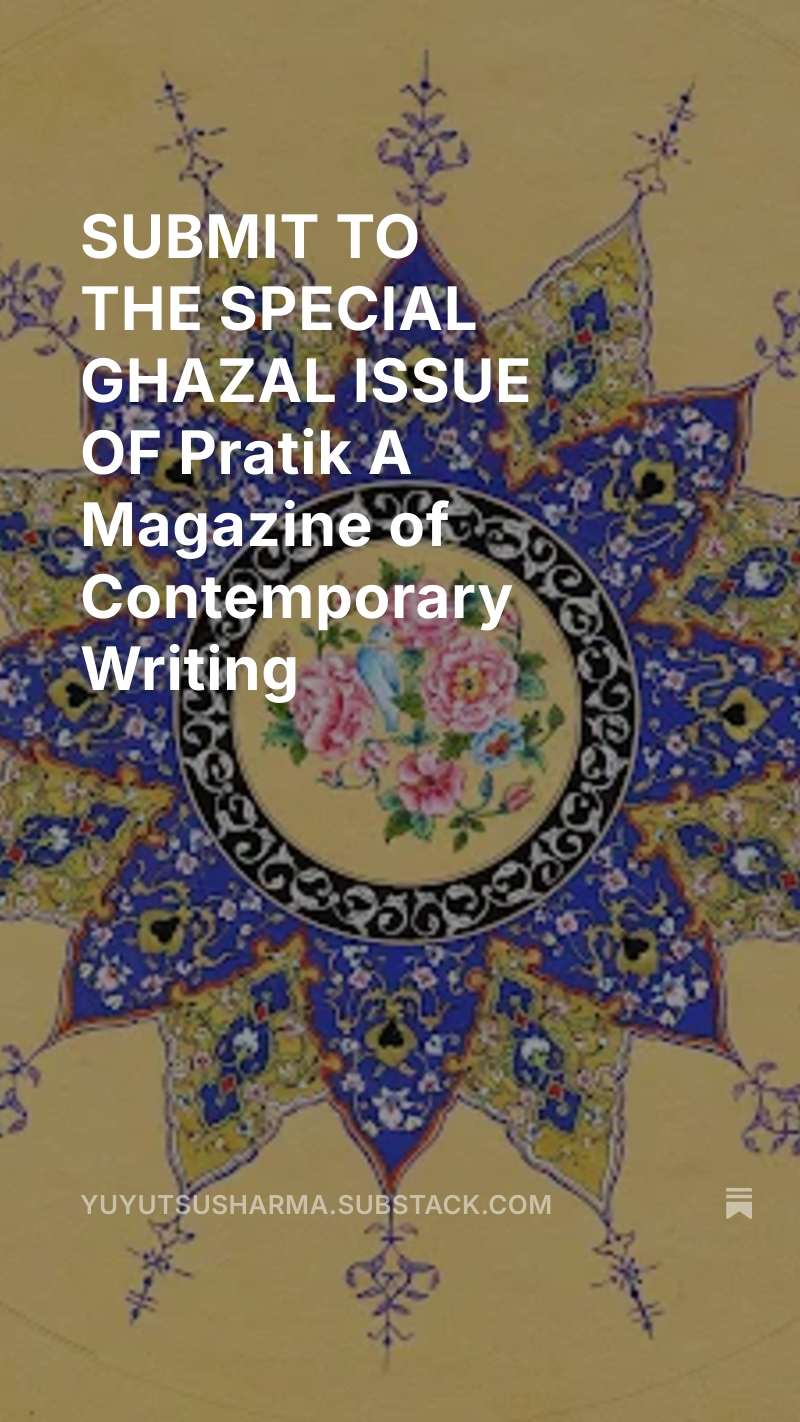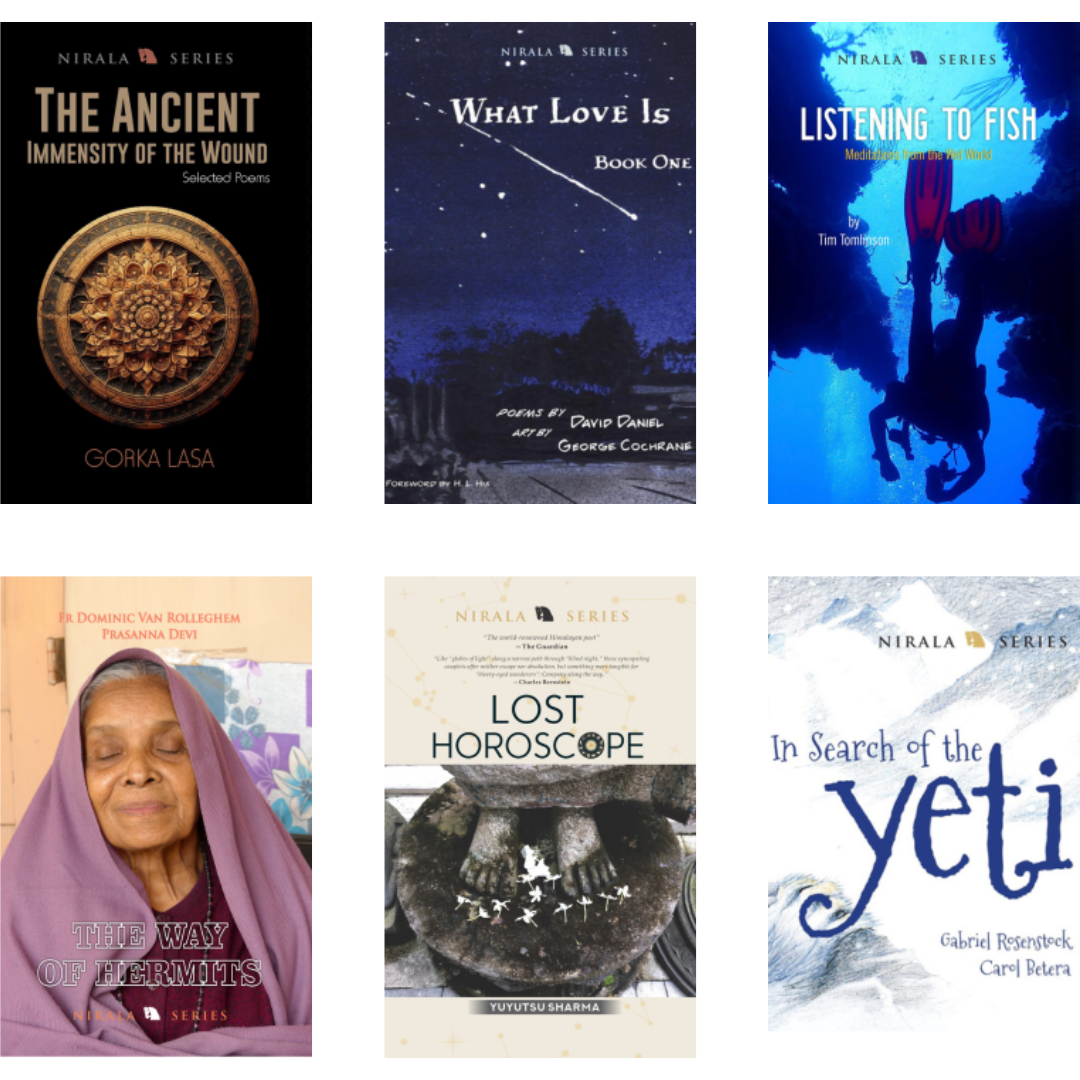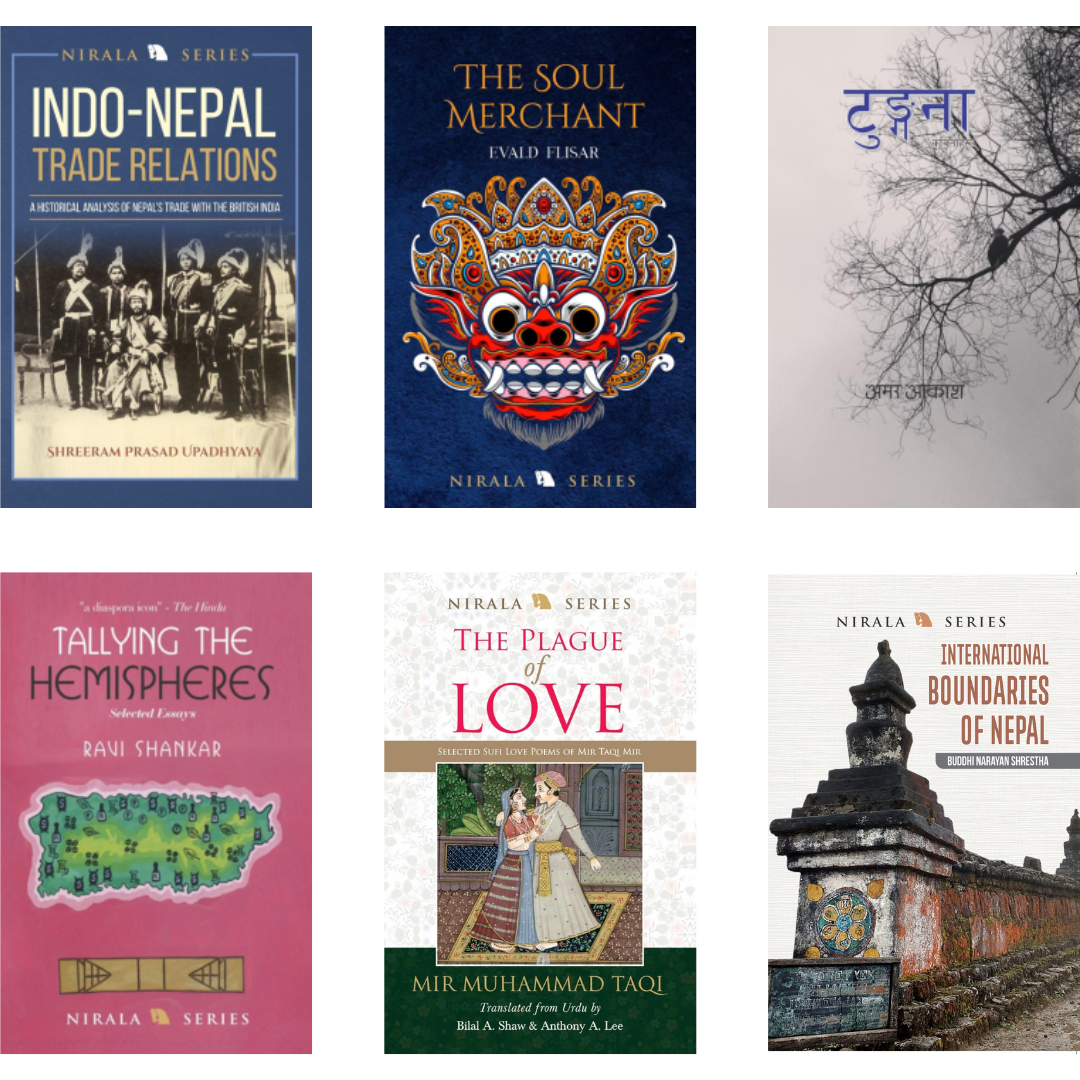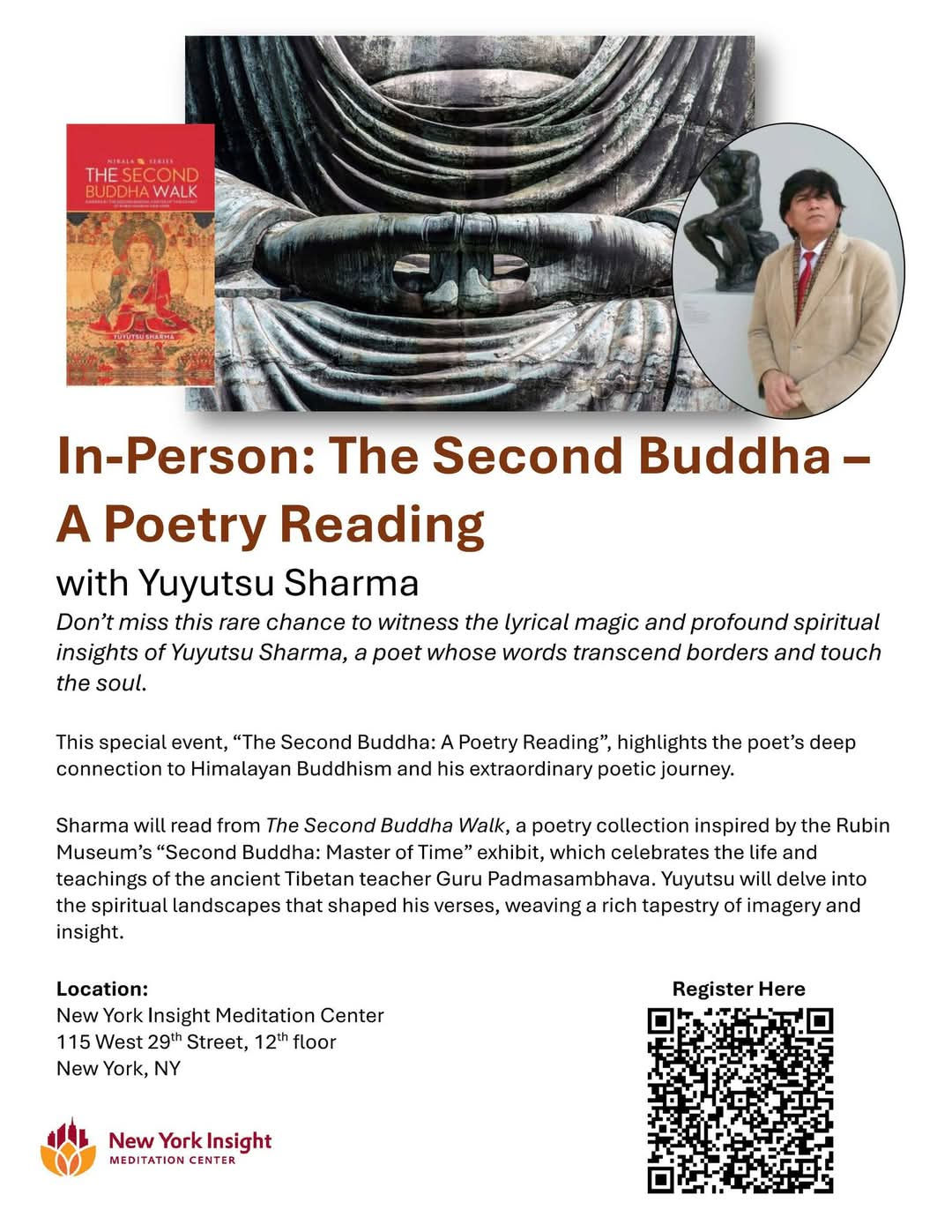
April 8, 2025/
No Comments
Pratik, one of the premier international poetry journals, will feature a special Ghazal Issue in Fall 2025. This landmark issue...



Pratik, one of the premier international poetry journals, will feature a special Ghazal Issue in Fall 2025. This landmark issue...


Nirala Publications, 4637/20, Third Floor, Unit No 310, Hari Sadan, Ansari Road, Daryaganj, New Delhi 110002 India
Tel: +911135946201, 09953726773, 7827866599
Sign up for our newsletter to receive special offers and events.
niralapublications@gmail.com

Copyright © 2024 Nirala Publications
Designed & Developed with ♥ By Hemant Bhatta